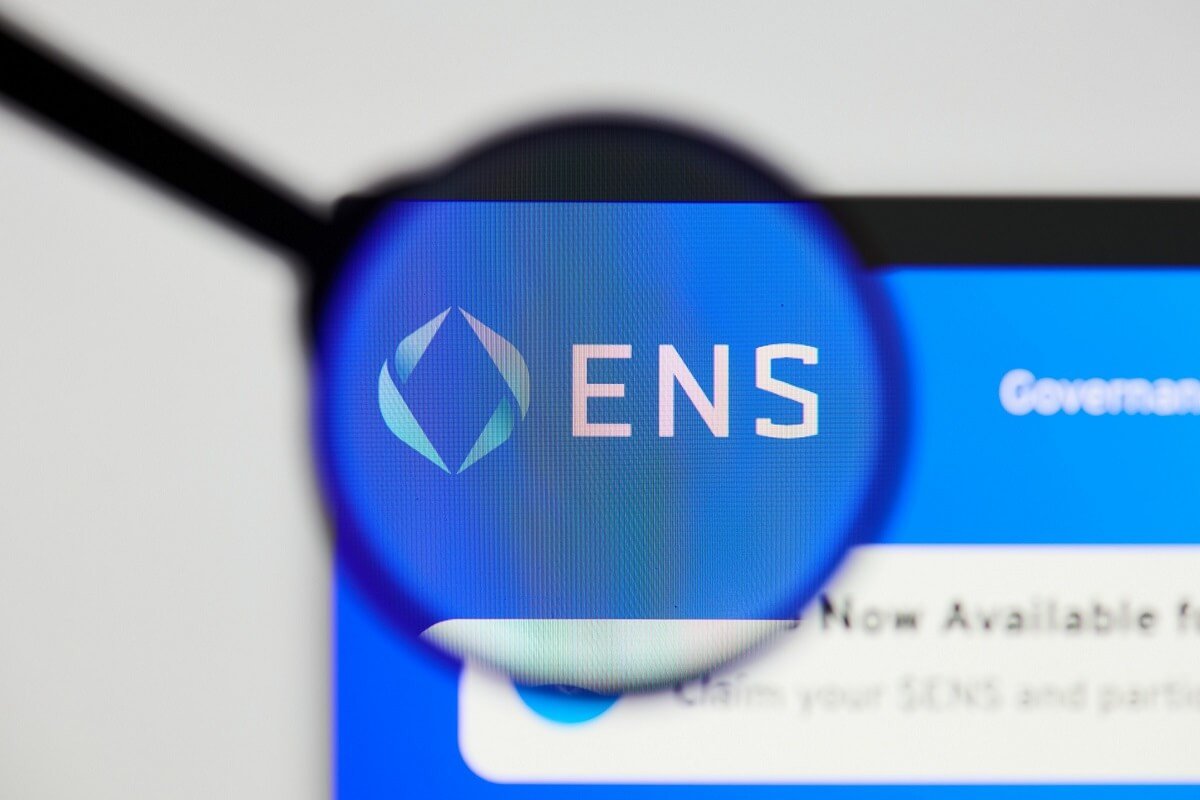Similar to how the internet progressed with the development of the Domain Name System (DNS), which translates domain names into IP addresses, the crypto industry is experiencing a parallel shift through the adoption of on-chain domain names.
What do On-chain Domains entail?
On-chain domains, as explained by Sandy Carter from Unstoppable Domains, are blockchain-based alternatives to traditional DNS. While DNS serves the business identity market, on-chain domains offer a decentralized solution for broader consumer identity needs such as payment handles, social media profiles, email addresses, and phone numbers. These domains allow users to use simple names instead of complex wallet addresses for cryptocurrency transactions. Additionally, they can serve as digital identities, enabling users to add metadata like Discord or Telegram accounts to verify ownership of crypto wallet addresses. This model provides users with portable data and identity across various platforms in the crypto space.
The Progression of On-chain Domains
Despite being a relatively new concept, on-chain domains have experienced significant growth over the past three years. Sandy Carter from Unstoppable Domains revealed that the company has registered approximately 4 million decentralized domains, with integration into popular browsers like Brave and Opera. Unstoppable has also partnered with fifteen registrars, including two ICANN-accredited ones, Entoro and GMO Internet Group, to offer their domains to customers.
Carter believes that these partnerships have contributed to expanding the global reach of on-chain domains. Additionally, the recent collaboration between GoDaddy and Ethereum Name Service (ENS), which is based on the Ethereum blockchain, further demonstrates mainstream interest in decentralized domains.
Improved functionality for Web2 domains
Paul Nicks, GoDaddy’s President of Domains, stated to Cryptonews that the collaboration with ENS aims to elevate the utility of GoDaddy domains, positioning them as the primary hub for users’ digital identities.
He mentioned that GoDaddy has embraced blockchain technology in response to customer demand for integrating crypto wallets with their domains. Nicks emphasized that the partnership with ENS aligns with GoDaddy’s vision of bridging the gap between the secure DNS infrastructure and emerging blockchain trends.
The focus of the partnership with ENS is to provide enhanced functionality for customers with existing crypto wallets. For instance, users can link their GoDaddy domain name to ENS and their crypto wallet address, allowing them to receive crypto payments using their domain name as the wallet address. This collaboration aims to simplify the process for users, particularly those who are not well-versed in cryptocurrency technology.
The storyline has shifted.
Don Ruiz, General Manager at Trust Machines, highlighted that on-chain domains were initially introduced to alleviate the friction associated with public keys, facilitating the transfer of crypto assets between users. However, recent developments such as the partnership between GoDaddy and ENS suggest a changing narrative surrounding on-chain domains.
Ruiz suggested that there is an evolving perception that on-chain domains could potentially replace traditional Web2 domains. However, he acknowledged that this transition has not yet fully materialized due to various factors. He emphasized that on-chain domains are currently more aligned with the concept of digital identity and predicted that Web3 digital identities will complement Web2 domains, expanding their usability in the coming years.
Nicks and Mizzoni concurred that the broader adoption of on-chain domains depends on digital preferences and the extent of crypto usage in various applications. Nicks emphasized that the collaboration between GoDaddy and ENS would resonate with customers already involved in the crypto space. Mizzoni noted that on-chain domains are currently advantageous for users with crypto wallets, particularly in decentralized networks like Farcaster, where every account is linked to a crypto wallet, enabling seamless profile connectivity across different platforms.
Considerations for overcoming obstacles
The implementation of on-chain domains presents challenges that hinder mainstream adoption. Ruiz highlights narrative and scalability as key disadvantages, citing the complexity of technology and processes as barriers. He emphasizes the need for education and improved user experience to facilitate the integration of on-chain domains by Web2 providers. As more players in the Web3 domain space collaborate with ICANN, on-chain domains are expected to become closely linked to Web2.
However, as on-chain development progresses, the issue of where users will prefer to establish their digital identity arises, with various blockchain ecosystems offering on-chain domain options. For example, ENS and Unstoppable Domains lead in this sector, while others like Stacks offer .BTC domains via BNS and NFDomains provide Algorand users with .algo suffix domains. Additionally, HNS on the Hedera Public Network enables users to claim their identity within the Hedera ecosystem.
Nicks mentions that GoDaddy’s current focus is on providing value through ENS alone, but they remain open to opportunities that address customer needs. Currently, .ETH domains serve as a popular option for establishing digital identity, acting as a bridge between Web2 domain names and crypto wallets.



